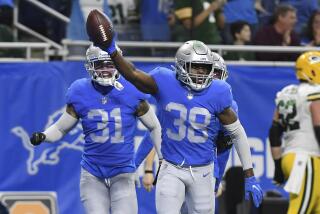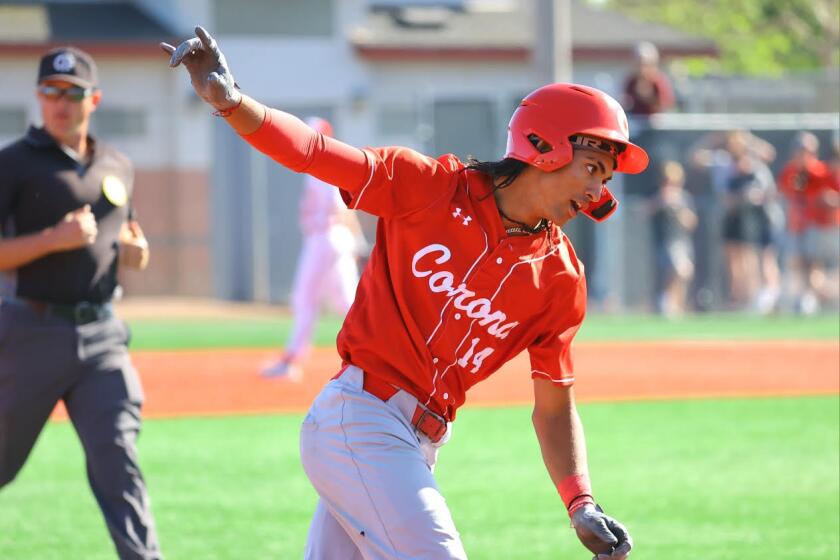Taylor Doesn’t See Random Testing Working
- Share via
MADISON, N.J. — For the last six years Lawrence Taylor has urinated in a cup twice a week to be tested for illegal drugs. It’s become so routine that the New York Giants’ 10-time Pro Bowl linebacker hardly thinks about it anymore. “It doesn’t bother me,” he said Tuesday. “I just do it.”
Still, Taylor thinks that if the NFL is allowed to implement a random drug-testing plan, the league’s players will not accept it as easily as he has. “I think on the whole, they wouldn’t like it,” said Taylor, who was suspended for four games in 1988 after testing positive for cocaine. “It’s an infringement on the players’ rights. I don’t think it would be right. You can’t take something from a person’s body unless they give you some probable cause.”
Newsday reported Aug. 6 that the NFL is considering a plan to randomly test players for illegal drugs and/or alcohol abuse. The proposed testing would have players undergo at least three random tests per season. Under the league’s current drug-testing program, players undergo one preseason test. If the test is negative, the player is not subject to further testing until the next preseason. If a player tests positive, he is subject to random testing. After a second positive test, he is suspended for six weeks without pay. A third positive test results in suspension for at least one year without pay.
Under the league’s current program for steroids testing, players are randomly tested throughout the season using a lottery system. Every week, seven players on each team are selected at random to undergo tests.
NFL spokeman Greg Aiello said Tuesday that the new random-testing plan is just one of a number of ideas the league is considering to comply with the new collective bargaining agreement, which instructs the NFL and the players’ union to discuss ways to revise the current drug policy. Both sides have to agree before a new policy is adopted. Thus far, the plan has not been presented to the union for discussion, though that could occur “over the course of the next several weeks,” Aiello said.
Though Taylor apparently has passed every drug test since 1988, he’ll continue to be tested twice a week until he retires. “I’ve done it for the last five or six years,” he said. “It doesn’t bother me.”
Though he accepts his plight, Taylor doesn’t think other players should be subjected to such testing without probable cause and also questioned the need for random testing. Since he came into the league in 1981, Taylor has seen a change in the players’ attitudes about drug use. “I don’t think drug use is anywhere 1/8what) it used to be because it used to be really bad,” he said. “But I don’t think it’s anywhere close. It’s way down.
“That’s the whole thing with the new generation now,” he continued. “The kids now are not doing as much drugs as they used to do. If they do do drugs, it’s a minute group of guys and when they’re doing them, they’re not doing much.”
*
Mike Fox Tuesday confirmed that he has received the letter warning the unsigned defensive end that he must report to training camp or risk suspension. “I got it yesterday,” Fox said from his home in Akron, Ohio. “But my position hasn’t changed.” Under a new NFL rule, if he doesn’t report by Friday, Fox will be exempted without pay for the next two exhibition games and the season opener at Chicago. If he does not sign a contract and report for any of the team’s final three exhibition games, he will be suspended without pay for a corresponding number of regular-season games. The two sides are about $700,000 apart on a two-year deal.
DE Eric Dorsey, who has missed all of training camp with back problems, now has a degenerative hip condition. He continues to work out on his own, but there is no prognosis for his return.
More to Read
Go beyond the scoreboard
Get the latest on L.A.'s teams in the daily Sports Report newsletter.
You may occasionally receive promotional content from the Los Angeles Times.










